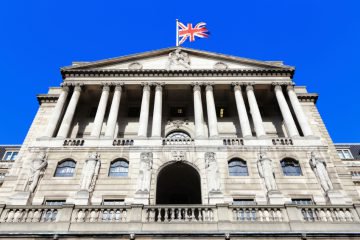UK interest rates slashed to historic lows-reaction
Yesterday, the Bank of England took a historic decision to slash interest rates in the UK to their lowest ever level of 0.25%.
Whilst this is not expected to have a significant impact on the overall property market, it is a signal that home borrowing is unlikely to rise in the short-term.
Historic
This is the first time that rates have been cut for seven years, without the Brexit fallout meaning that borrowing will stay historically low.
However, parts of the real estate market could be impacted. Andy Pyle, UK head of real estate at KPMG, this could depend on location and price of properties. Pyle said, ‘whilst a number of overseas investors are being cautious, others are attracted by the depreciation in sterling enabling them to buy more cheaply and the reduction in interest rates has already had an impact on the value of the pound.’[1]
Adam Challis, Head of residential research at JLL, feels the reduction in interest rates will signal to mortgagors the cheaper rates will be around for a prolonged period. He noted, ‘this will benefit many would-be home movers and we are encouraged by the Term Funding Scheme that will ensure lenders pass on most of the rate reduction to consumers.’[1]
‘More important for the housing market is a strong, stable economy and the rate cut will help. Post-referendum we need greater certainty that will encourage house builders, protect jobs and ultimately provide a range of housing that people can afford.’[1]

UK interest rates slashed to historic lows
Remortgaging
Stephanie McMahon, head of research at Strutt & Parker, believes that the cuts will lead to a surge in remortgaging. She observes, ‘rates were already at record low levels, however a further drop may see lenders whose margins allow seeking to be competitive. As such, we can anticipate those who have sufficient savings to meet the loan to value criteria amongst potential home buyers.’[1]
Stephen Stone, chief executive of home builders Crest Nicholson, noted that lower rates could help the housing industry: ‘with interest rates and unemployment now at an all-time low, now is a great time to buy and we can expect a boost to the economy and in particular the house building industry with renewed confidence amongst potential home buyers.’[1]
Jonathan Hopper, managing director of buying agents Garrington Property Finders, believes the slash in rates will not assist the property market that much. Hopper said, ‘in the context of the housing market, today’s interest rate decision is in reality just a sticking plaster which fails to solve a deeper underlying issue. With property transaction volumes all but drying up, what’s urgently required is direct Government action to reduce the costs of moving.’[1]
‘For many home owners in London and the South East especially, the call on cash to fund skyrocketing stamp duty costs has become an insurmountable barrier, blocking their progress up the housing ladder. Post-Brexit, what the market really needs is a balanced stimulus package to get Britain moving, without further increasing house prices. The Chancellor and Governor of the Bank of England are unlikely to find better ways to boost the wider UK economy,’ he added.[1]
[1] http://www.propertywire.com/news/europe/uk-interest-rate-mortgages-2016080412226.html







